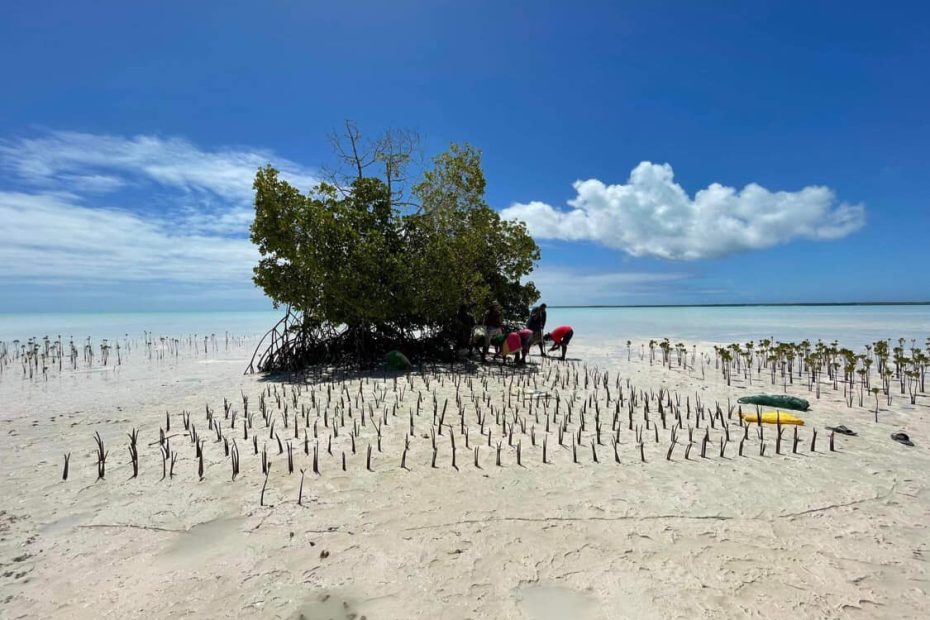Mangroves, Maiana Island (Image from Kiribati Environment and Conservation Division, UNDP)
Monsignor Gerard Burns
It became clear in the Oceania continental process (with notable exceptions) that, by our common Christian formation that the Church is the privileged place for the experience of walking together, the first focus of conversation and discernment was around the intra-human dimensions of communion, participation and mission.
This seems to have been the case around the world and so there was little mention of care for our common home and had little mention in the session’s preparatory document, the Instrumentum Laboris.
Perhaps conscious of this and the ongoing ecological and social crisis our sister Mother Earth is experiencing, Pope Francis symbolically and materially placed care of our common home at the start of the gathering, the General Assembly of the Synod on Synodality in the Church. The assembly formally started on 4 October, feast of Saint Francis of Assisi. The document Laudate Deum was published the same day, a follow-up to Laudato Si’, a preparation for COP28, and a placing of the synod process in this crisis context.
This document, plus the discernment process at the circular tables of the synod hall, means that care of the earth has a couple of significant mentions in the Synod report.
In section 4, People in Poverty, Protagonists of the Church’s Journey, (e) makes the point that ‘standing with the poor means engaging with them in caring for our common home. The cry of the earth and the cry of those living in poverty are the same cry….. Laudate Deum emphasises this. To assist this, section 4 (q) states: Church liturgy, teaching and practice must more explicitly and carefully integrate the biblical and theological foundations of integralecology.
Section 5, A Church out of every tribe and tongue and people and nation, which speaks of the rich cross-lingual and cross-cultural diversity within the Church as well as its challenges. In 5 (f) it is stated that the common work of social justice, peace, reconciliation, and care for our common home can be a powerful witness in the face of a fragmented and violent world.
There is also a recognition in 5(n), of the need for ‘new paradigms of pastoral engagement with Indigenous People, on a common journey and not as an action done to them or for them’. Their participation in decision-making processes at all levels will bring ‘a more vibrant and missionary Church’.
How this is done in different contexts is the question. However we know that, because of Indigenous/First Peoples cosmovision and spirituality, any common journey will inevitably demand a deep kinship with the earth and all its creatures.
Monsignor Burns is Vicar-General at the Archdiocese of Wellington in New Zealand and RAOEN Core Group member.


